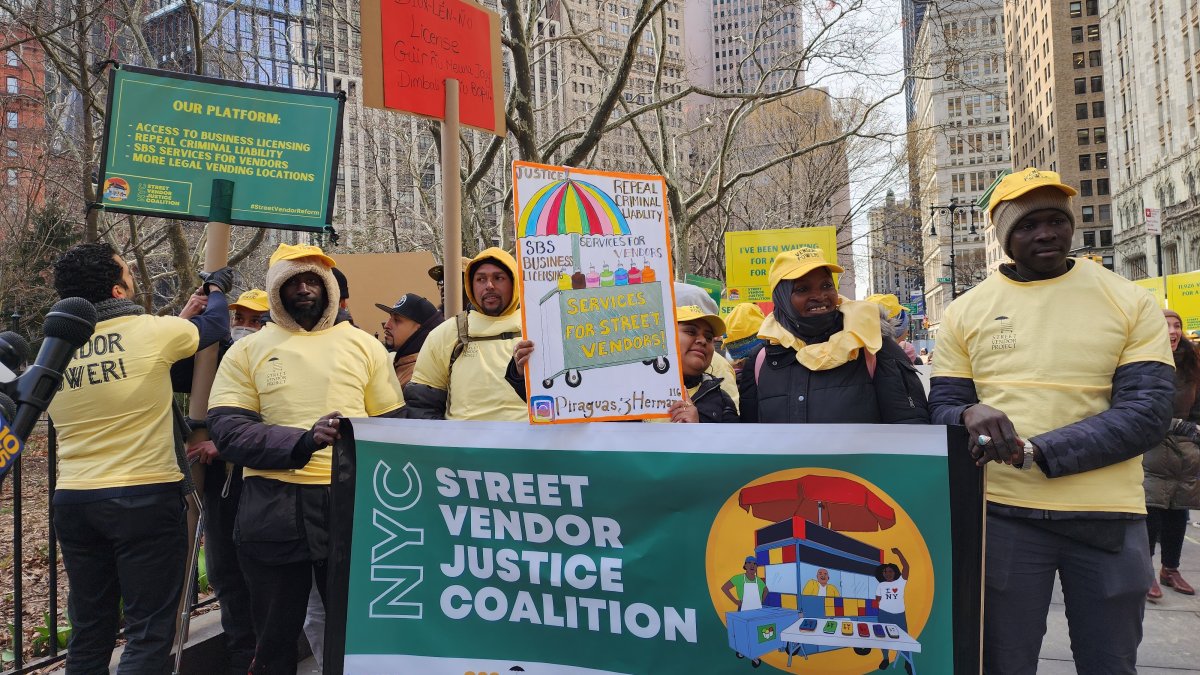NEW YORK – Hundreds of street vendors in New York, mostly immigrants, demanded on Thursday that the city approve a reform of this sector so that they are considered small businesses and that more licenses be approved that allow them to work legally with the order to avoid large fines and confiscation of your goods.
They are also asking as part of this reform that the places designated for itinerant sales be enlarged.
The vendors, from various ethnic groups and carrying placards in multiple languages with their demands, staged a protest outside City Hall where they launched their “Street Vendor Reform” initiative backed by a coalition of grassroots organizations. various sectors and several advisors.
“I love New York. We have essential workers to be thankful for by improving street sales,” read a message in Arabic as a Latino vendor held up a sign that read “legalizing retail is a duty moral”.
These workers have been asking the city for years to expand licenses to legally sell on the street, as they were frozen in 1979 and workers sell without permits, facing a fine of $1,000, which often equals to the amount they sell. in a week, or by renting a permit (for amounts up to $25,000) to those who have had it for years, in an underground market.
Currently, there are more than 10,000 people on the waiting list for permits to sell food and 11,926 people for selling other types of merchandise, according to data from the Street Vendors Project.
In 2021, after an intense struggle of several years, the Council (municipal legislature) approved only 4,450 new permits to sell food in the next 10 years, but the Ministry of Health has not yet started issue new licenses.
“I dreamed of owning a food truck so I could sell West African pastries,” said Rose Goba, who fought for the new licenses but won’t benefit because her number on the waiting list is too high.
The workers seek with the reform to create a division within the Small Business Administration dedicated to street vendors and thus receive fair treatment since they pay taxes.
Among the advisers supporting the claims is Pierina Sánchez, of Dominican origin, who recalled that her father was a street vendor, both in the Dominican Republic and in New York and that she has relatives who sell on the streets.
The adviser cited 2012 statistics that said street vendors paid $71.2 million in local, state and federal taxes that year, contributed $293 million to the local economy and generated $192 million. dollars in profits.
It is estimated that in New York there are 20,000 vendors on the streets of the city.
Councilors backed reform that would bring street vending out of the shadows and said these vendors “are the soul and heart of the city, the ones who feed us, say hello to us and connect you with your culture”.

